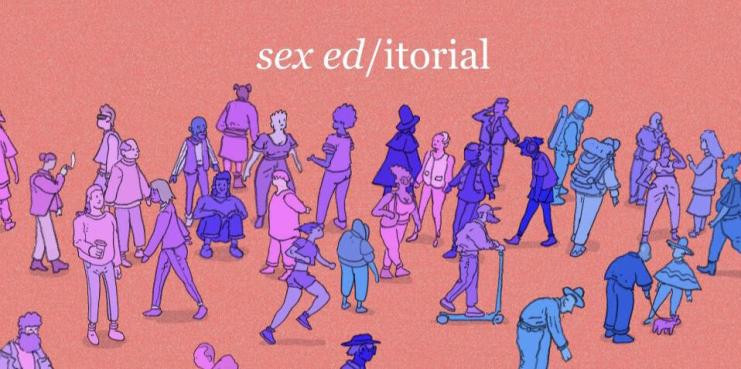Sex ed/itorial: Dating as a woman on the asexuality spectrum: Addressing common que(e)ries
Compulsory sexuality sensationalizes physical desire
When I came out as queer back in the eighth grade, I identified as a bi/pansexual woman. I continued to use this label until about a year ago, when some asexual individuals’ experiences began to resonate with me.
For one thing, I never really understood the concept of crushes back in grade school, or how anyone could just hook up with some random stranger. In fact, my idea of flirting consists of engaging in deeply philosophical and intellectual conversations, as any desire I feel for another is mostly romantic in nature.
While I’m technically not asexual in the strict sense, I definitely fall somewhere in the middle of that spectrum, so I guess you can say that “demisexual” is the proper term for this. Would that make me demisexual bi/panromantic? Regardless, as my partner would say: “Fuck les labels.”
I don’t experience sexual desire, save for some exceptional instances when I’m in a romantic relationship. This fact has posed some problems when I initially started dating amid a culture of compulsory sexuality, the normative assumption that individuals are inherently sexual beings.
When I entered the talking stage with someone, whether that be in person or through a dating app, the mere mention of my identity turned into an invasive game of 20 questions. My existence became a so-called learning experience to supplement someone else’s performative allyship, only for me to be ghosted later on.
Awkwardly enough, when I finally made the leap to fully disclose how I identify on my dating profiles, I would still get direct messages from shirtless dudes about what brought me to Tinder, and if I was open to hooking up.
Having endured some awkward encounters with blue-balled cisgender heterosexual men on Tinder, I began to grapple with my own invisibility. The pervasiveness of this invisibility continued to lurk from the corner of my bedroom when I was doing some painstaking research for a women’s studies project, which brought me to some papers on asexual wasps and plants. Thanks a lot, EBSCO.
Why is it that people interpret enthusiastic consent to making out and being touched as being turned on or wanting more?
As if bearing the brunt of compulsory heterosexuality wasn’t enough, not only do I feel pressured to conform to a hegemonic view of womanhood that is imbued with the male gaze and essentialist conceptions of femininity, but my invisibility to others makes me susceptible to the pressures associated with compulsory sexuality. These pressures are so deeply ingrained within me that, when I first became aware of my queerness, I failed to question the very nuances of my identity, as I conflated romantic attraction with sexual attraction.
The normative assumption that an individual inherently experiences sexual attraction, let alone wanting to act on it, has led to people overstepping my boundaries. Why is it that people interpret enthusiastic consent to making out and being touched as being turned on or wanting more?
Not only do these assumptions come from a place of misinformation about consent, but also of compulsory sexuality, which I inevitably internalized. This internalization has put me in positions where I gave consent without really wanting to. It was as though the norm of sexuality coerced me to reify it through its weaponization of misogyny, lest “I led my partner on” or that “I wasn’t good enough for my partner.”
Amid clashes between my (a)sexuality and my current partner’s sexuality, it’s only through ongoing discussions of boundaries—as well as mutual deconstruction of the norms we’ve been fed about desire and compulsory sexuality—that we’re working to keep our relationship healthy.
At the end of the day, despite always having felt excluded from the mainstream conception of the dating scene, I’m learning to forge my place within it nonetheless by asserting myself, my identity, and my passions—all of which I would love to share with others.


_600_832_s.png)




_600_375_90_s_c1.jpg)